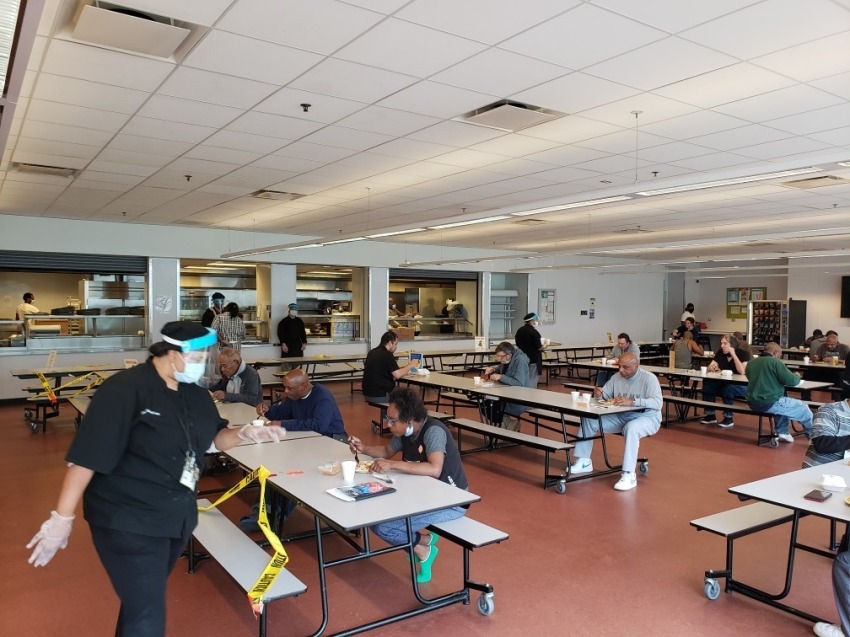Chicago shelter home’s strict coronavirus rules draw complaints from residents, awards from others

Shelter home residents in Chicago say they feel trapped by the many restrictions put in place to curb the spread of COVID-19. But the head of the shelter says they face difficult pressures from the ongoing coronavirus pandemic.
“I understand they want to keep us safe. I’m a fan of them. But we have kids. We have things to do,” said a single mother, who requested anonymity, to The Christian Post. “People who are locked in here can’t do the things they need to do. I don’t want to catch the COVID, but I feel like they’re trying to trap us inside here like prisoners.”
She currently lives at a shelter home run by A Safe Haven, a Chicago-based organization that maintains 40 locations dedicated to helping the homeless.
A Safe Haven’s locations are special as homeless shelters because they offer guests rooms to stay in for long periods of time, Neli Vazquez-Rowland, president and co-founder of A Safe Haven Foundation, told The Christian Post. She has run the shelter network for 26 years. Most shelters have large bed-filled spaces where people can sleep if they have nowhere else to go, but A Safe Haven is special for the 1,400 people who live there.
“We actually provide people with rooms and semi-private locations. A mother can be in a room, stay private, close the door and sleep by her children,” Vazquez-Rowland said. “Our model is often referred to as the center of excellence here and around the world. We serve about 5,000 people a year. We believe we are all God’s children.”
The shelter provides people with individualized help so they can make their own way in life, she said. People come to A Safe Haven because they want to change their lives. People usually leave within 90 days with a new job, although some people will stay for months.
Under the home’s COVID-19 lockdown protocols, the single mother said her two young children have to stay in their room all day.
“My son is a very hyper child and he doesn’t like to stay in the room all day. Safe Haven ain’t like it used to be,” she said. “My son wants to be somewhere else where he can have a little more freedom and a little more fun. They didn’t even let us out on Thanksgiving to see our family.”
Before the COVID-19 pandemic, A Safe Haven had curfews, Precious Barstatis, a 23-year-old single mom with a 2-year-old daughter, told The Christian Post. Residents had to be in their rooms by 7 p.m. on weekdays and 10 p.m. on weekends.
“They do random drug tests, no drinking, no marijuana. There’s the normal restrictions that buildings or schools would have. It’s kind of like how a school is,” Barstatis described.
But during COVID-19 lockdowns, restrictions on the activities of shelter home residents became burdensome, she said.
“We have very limited opportunities to leave and do stuff we need to do, go to the store or go to appointments or job interviews. Everybody has to get a pass, so it takes a long time to get our passes approved. It’s very hard,” she said. “Sometimes they let us go to the store, but they give us only an hour to get [stuff] and it takes over an hour to get to the place, go shopping and come back. They do give us diapers and wipes sometimes but it’s very limited. It gets pretty crazy.”
Both mothers said that approving a pass to leave the home so they can buy essential supplies for their children can take up to two days.
“It is crazy. It is really stupid. They don’t let us go outside, period. Then we can only order food once a week and that’s on a Friday. We used to be able to order food every day, but once COVID hit they want us to do nothing but stay in the building all day,” said the mother of two.
Both mothers said it doesn’t make sense that staff and shelter residents with jobs can leave the building for hours every day but short trips to get groceries or diapers require day-long approval wait times.
“The people I know either work with CTA or with a warehouse or a corporation, so they’re involved with a lot of people around them. But they still allow them to go out,” said Barstatis. “The workers are able to go anywhere they want but we can’t. They could have COVID and they’re all around us.”
“I feel it’s the stupidest thing in the word as grown people to have to write a pass before we get out the door,” said the other single mother. “It takes two days to get approved. They’re just making up stupid stuff. They’re scared that somebody might contract COVID.”
A Safe Haven has received awards for its strict COVID-19 quarantine procedures, Vasquez-Rowland said. These awards include Crain’s Chicago Business’s Healthcare Hero award, and Chicago Innovation’s award for creating a new COVID-19 medical center for people who are poor or homeless.
The COVID-19 medical center has cared for 425 people so far, she said. A Safe Haven has not had a mass outbreak of COVID-19 or any COVID-19 deaths, even though homeless people and others in shelter homes often have health conditions which endanger them if infected.
“Thankfully, we have historically had very strict infection control policies. When the news started to spread about a pandemic in other countries, we took notice and established even stricter pandemic policies,” Vazquez-Rowland said.
These policies include quarantine on arrival, universal mask use, social distancing, constant cleaning by housekeeping, and a strict no visitors and no gifts policy, she said. Vazquez-Rowland confirmed that shelter home residents must get a pass to leave the shelter for items like groceries or diapers.
“[Rules are] the only way we’re going to keep everyone safe. It’s the only way to keep everyone on the same path. Not everybody likes rules, not everybody likes to follow the regulations, and not everybody stays because of that,” she said. “If you go into a hospital, they’re not going to let you go around and do what you want. You’re in the hospital because you’re sick.”
Pandemic regulations and the economic disaster caused by COVID-19 shutdowns have pressured institutions that care for the homeless in many ways, said Vazquez-Rowland. Social distancing measures mean that homeless shelters now can fit far fewer people than normal, and the number of homeless people has increased. It’s also harder for people to find jobs and move out of homeless shelters.
Shelter owners across Chicago fear the effects of a COVID-19 economy and the upcoming winter on the homeless population. Some shelter owners say they suspect the pandemic to double shelter numbers, the Chicago Tribune reported.
“COVID has made it horrible, horrible, horrible,” Vazquez-Rowland said. “The homeless don’t necessarily have a place to shelter. Those that are in the business of helping provide them shelter are being underfunded. We literally have situations where some homeless programs that used to have 100 people now have about 40 people [because of social distancing].”
Vazquez-Rowland said she had to turn away 1,000 people every month because the shelter doesn't have rooms.
Barstatis said she has been in the shelter since August 2019 while the other mom has been in the shelter since April 2019. Both said they face a deadline to leave the shelter by Feb. 1 and that they have struggled to find jobs because of COVID-19.
The mother of two is currently looking for an apartment to move into with a man she knows. After she finds one, she can get by on savings and unemployment money until she finds a job.
“We’re trying to find a job and trying to get up out of here and it’s not easy. Sometimes it’s hard for me to tell my son about,” she said.
Barstatis said she's looking for an apartment and a job that can provide healthcare for her daughter. However, she missed one interview because A Safe Haven wouldn’t give her a pass to leave. It’s also difficult to find an open daycare where she can keep her young daughter while she works.
“It makes it a lot more stressful,” she said. “I had [an interview] I wanted to go to, but they wouldn’t let me out and I couldn’t find a daycare that would watch her for a couple of hours.”
To fix the problems caused by COVID-19, shelters need resources, Vazquez-Rowland said.
“Resources are drying up in every city right now. You can’t have wraparound services without the money to do it,” she said. “Our goal is to help enforce a paradigm shift. We can try to help a person in a moment, or you can build a model that is going to help change our broken system. I believe people have potential. God gave us all gifts.”



























